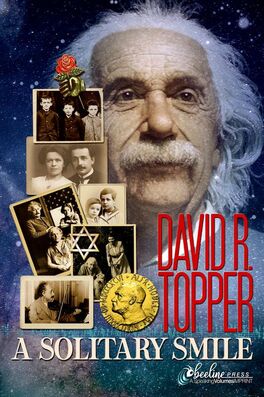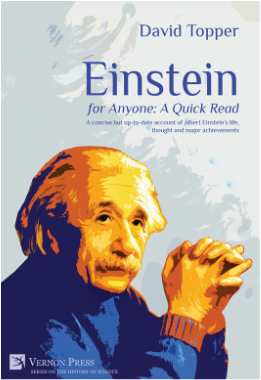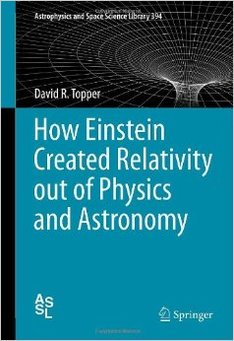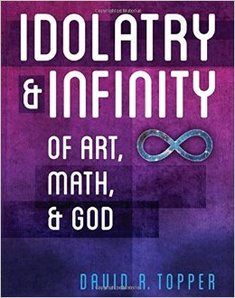Remnants of our Life with your Dementia: A Poetic Memoir
Victoria, BC: Friesen Press, 2021
A poignant account in poetic verse of one man’s journey with his wife, into the all-encompassing realm of her dementia.
"It's a brave, wonderful book at heart." —Catherine Hunter
https://books.friesenpress.com/store/title/119734000175465899
(Note: it is much cheaper $$ buying a new copy directly from the Press than through Amazon. The last I looked it was only $6.50.
Also, I am getting no Royalties on this book.}
See FYI (above) on this website for more on Sylvia.
From Joanna Webb, GP & palliative care physician.
I found it very moving. … It was also a beautiful love story. … I feel it’s a really important book for physicians. Especially family physicians who are often tasked with navigating the initially murky landscape of mild cognitive impairment moving towards dementia. I found your poems around the work up of her diagnosis compelling. … Congratulations for writing such a heartbreaking, intimate, heavy yet light hearted memoire.
From Joanna Webb, GP & palliative care physician.
I found it very moving. … It was also a beautiful love story. … I feel it’s a really important book for physicians. Especially family physicians who are often tasked with navigating the initially murky landscape of mild cognitive impairment moving towards dementia. I found your poems around the work up of her diagnosis compelling. … Congratulations for writing such a heartbreaking, intimate, heavy yet light hearted memoire.
From Robert J. Young, a retired teacher and the recipient of both teaching awards and awards in scholarship.
Sylvia Topper, David’s deceased wife, lived with Dementia for six years. As did David and their families. In one sense the
book is a tribute to a highly accomplished and courageous woman, especially with respect to the closing years when she
became less and less accomplished. David witnessed and grieved that descent on a day to day basis, and pulls no punches
when he confesses “this story is all too awful.” He writes beautifully, within a structure more familiar to poets and readers of contemporary poetry. No paragraphs as such, no prose, but ultra-personal, touching and, yes, terrifying. This is a remarkable memoir, moving, uplifting, troubling.
From Robert J. Young, a retired teacher and the recipient of both teaching awards and awards in scholarship.
Sylvia Topper, David’s deceased wife, lived with Dementia for six years. As did David and their families. In one sense the
book is a tribute to a highly accomplished and courageous woman, especially with respect to the closing years when she
became less and less accomplished. David witnessed and grieved that descent on a day to day basis, and pulls no punches
when he confesses “this story is all too awful.” He writes beautifully, within a structure more familiar to poets and readers of contemporary poetry. No paragraphs as such, no prose, but ultra-personal, touching and, yes, terrifying. This is a remarkable memoir, moving, uplifting, troubling.
From Russell McCormmach, a retired professor, editor, award-winning author, and Einstein scholar.
With Remnants of Our Life, You, by nature an academic reader and thinker (and writer), in keeping, commemorate your
loving marriage with a book, not an academic book this time but a poetic memoir, befitting its purpose. As I read it, I thought
about your Einstein novel, with its merging of memory, affection, longing, and sorrow. In Remnants, the way you set the words
on the page suggests to me, among other things, the disconnectedness of the experience of living with one who is stricken by
dementia. Through well-chosen details, you gave me a memorable picture of your and Sylvia’s life together, of who she was
before her illness, and what was lost as her illness took over. You’ve written a warm and heartbreaking account of the last years.
From Gail Young, a retired teacher.
Reading Remnants of Our Life I was riveted by your story - your journey - your layering of pain and love, agony and devotion. What a raw look at the heart and soul of a couple! I was drawn to your connection, your connection through memories and a fierce attachment, despite the shredding of those tethers. I cried with you repeatedly - especially touched by “since you had already lost your cognitive attachment to our home and everything in it (which included me)" and later the image you reconstructed - listening to the recording of Debussy’s Arabesque No. 1 and reading the sheet music - of Sylvia as an early teen. That really moved me. I’m sure I’m not the first to say your book could be, would be, will be a balm to partners/families of others with dementia. Thank you so much for sharing your poetic memoir with me.
*
From Lewis Pyenson, a professor & prolific author whose most recent book is The Shock of Recognition.
David Topper’s poems about his wife’s path through dementia are governed by clear and sympathetic images. The onset of Alzheimer’s is conveyed by touching examples, and there is nobility in his devotion as the illness consumes a vital mind and body. Frequent comments by his clever wife, Sylvia, caution the poet against taking metaphorical flight. They suggest that she accepts her situation. The poems quietly illustrate the great and enduring joy that graced two lives joined for much of a lifetime.
*
From Michael Eskin, a professor, multi-awards winning scientist, & author of about a dozen book.
Thank you for your latest book. To say that we were touched by it is an understatement. It is
beautifully written both the stark reality and the very poignant parts. Your conversations with yourself were effective in communicating the unbelievable pain and the simple pleasures you were able to appreciate during Sylvia's last few years. It is a fitting testament as well as a helpful book for those individuals whose spouses are going through the ravages of dementia. Thank you for sharing the book with us and the wonderful relationship you had with Sylvia.
*
Martin Colledge, a retired physician.
The balance of intimacy, irreverence, information and playfulness ..... is perfect!
From John Donoghue, a retired professor
Well, what a book. What a chronicle. I was very moved by it. I thought it captures--in a creative and powerful way--what you went through. But it's also what you both went through--as I read along, Sylvia was always present, woven into the account by you speaking directly to her or to your "other self" about her. And never once as I read along did I feel the book was asking me to feel pity for either of you. There was what I would call a "deeply felt objectivity" running throughout. Sure, there's sadness and humor and struggle and confusion and more--but never does the book ask me to carry your burden, never does it take from the reader, it only gives to the reader.

A Solitary Smile: A Novel on Einstein
Naples, Florida: Beeline Press, 2019
(An Imprint of Speaking Volumes, Santa Fe)
There are a gazillion non-fictional books about Albert Einstein. On the fictional side, he is a character in movies, plays, TV videos (such as the recent TV mini-series Genius), and in novels about other people. He is the central character in two operas. Even his first wife, Mileva Maric, recently had a fictional novel written about her. Yet, you probably will search in vain to find a historical novel about him alone.
Unlike almost all famous people in history, for whom there is a plethora of novels on their lives, Einstein has strangely remained untouched, for whatever reasons. Until now.
Here is the story of Einstein’s life as reminisced by Albert himself one day (March 21, 1955) less than a month before his death. He sits in his study in Princeton, New Jersey composing a condolence letter to the family of his best friend, Michele Besso, who just died. In the process, he reminisces on his life: he does this through day-dreams, real dreams (as he sporadically dozes off), conversations with his loyal secretary/housekeeper Helen Dukas, his devoted step-daughter Margot, and some friends who visit him over that day, such as Robert Oppenheimer. There is also an occasional imaginary dialogue back-and-forth with Besso, which regularly acts as the basis of self-critical interruptions of the narrative. In five chapters he recalls the women in his life (his first love, his two wives, his mother), his struggle with his Jewish identity, his radical social and political ideas (from growing up in anti-Semitic Germany, to dealing with racism and McCarthyism in post-war America), and of course his radical scientific ideas.
In this work of historical fiction – but based on extensive research – the role of music (especially Mozart) in his life, and even in his work, weaves throughout the text – rather like a soundtrack to a movie.
Amazon.com: https://amzn.to/2LtDMXy
Amazon.ca: https://amzn.to/2SlKZcN
The following is from Russell McCormmach, retired history of science professor, Johns Hopkins University, foremost scholar on Einstein and author of the much acclaimed novel, Night Thoughts of a Classical Physicist (Harvard, 1982).
He is the recipient of several major prizes, including the prestigious Abraham Pais Prize in the History of Physics.
This note was received July 29, 2019.
Dear David,
Thank you very much for the copy of your fascinating Einstein novel, “A Solitary Smile.” It is a fitting complement to your book on relativity theory. It is fitting as well to the person you dedicate the book to, your teacher the Einstein scholar, Martin Klein.
With your combination of memories, musings, dreams, and conversations, you convey to the reader the complex humanity of your subject. I find the book very moving, and especially the ending, which weaves together fugue-like the enduring themes of his life, the women in it, the great friendship with Besso, his Jewish roots, his sensuality, his love of music, and his unceasing dedication to uncovering the ultimate law of the universe, the great unfinished work.
I enjoy how you bring in the future in a few places: gravity waves, right again; blackhole singularities; (your) historical biography; and Philip Glass’s “Einstein on the Beach,” with its opening scene “Train.” Incidentally, the dream of relativity trains and Nazi cattle cars is hallucinatory.
With best wishes,
Russell
He is the recipient of several major prizes, including the prestigious Abraham Pais Prize in the History of Physics.
This note was received July 29, 2019.
Dear David,
Thank you very much for the copy of your fascinating Einstein novel, “A Solitary Smile.” It is a fitting complement to your book on relativity theory. It is fitting as well to the person you dedicate the book to, your teacher the Einstein scholar, Martin Klein.
With your combination of memories, musings, dreams, and conversations, you convey to the reader the complex humanity of your subject. I find the book very moving, and especially the ending, which weaves together fugue-like the enduring themes of his life, the women in it, the great friendship with Besso, his Jewish roots, his sensuality, his love of music, and his unceasing dedication to uncovering the ultimate law of the universe, the great unfinished work.
I enjoy how you bring in the future in a few places: gravity waves, right again; blackhole singularities; (your) historical biography; and Philip Glass’s “Einstein on the Beach,” with its opening scene “Train.” Incidentally, the dream of relativity trains and Nazi cattle cars is hallucinatory.
With best wishes,
Russell
|
Also: posted on the Internet 5.0 out of 5 stars Russell McCormmach August 28, 2019 - Published on Amazon.com Format: Paperback David Topper’s fascinating Einstein novel, “A Solitary Smile” is a fitting complement to his book on relativity theory. With its combination of memories, musings, dreams, and conversations, it conveys to the reader the complex humanity of its subject. The portrait, which over the course of one day depicts the personal and scientific struggles of a lifetime, is very moving. This is so especially the ending, which weaves together fugue-like the enduring themes of his world, the women in it, the great friendship with Besso, his Jewish roots, his sensuality, his love of music, and his unceasing dedication to uncovering the ultimate law of the universe, the great unfinished work. David R. Topper: ``A Solitary Smile”
This historical novel is a must read by anybody who is interested in Einstein’s life and work. Dr. Topper, a noted Einstein scholar, brings to light in an ingenious choice of venue (Einstein’s study in Princeton) where he is reminiscing not only about his scientific accomplishments but also about his complex personal life. Among the particularly fascinating topics, the reviewer will mention here only the following: * Einstein reworked our concept of space, time and momentum, * Einstein preferred to think of invariant theory rather than the theory of relativity, * G. Cantor’s concept of transfinite numbers and set theory as among mathematicians, * Spinoza’s influence on Einstein’s theology and his understanding of God, * Einstein’s struggle with his Jewish identity, * Einstein’s comments on western music vis-a-vis dissonance in other types of music, * Einstein’s social efforts on behalf of the plight of the Eastern European Jews facing the barbarism of German anti-Semitism and fascism, * Einstein’s `chutzpah’ during the McCarthy era. In short, Professor Topper’s book is a unique reading experience: the reader feels as if Einstein was talking to him/her directly. George Csordas Emeritus Prof. of Mathematics |
Josef Eisinger
7 Aug 2019
Dear David,
Your Einstein fantasy has arrived and I enjoy reading it immensely. Thank you very much!
As you can imagine, I have also been able to get into Albert's skin with ease. Having the same mother tongue and school and family history not that different from his, and with not too dissimilar youthful woman-trouble, I have often imagined his ruminations. You have done so very expertly by making use of the enormous amount of biographical information that is available, and your perceptive understanding of how his mind must have worked. You could have called the book: Albert in Night-town.
Thank you again, I hope your book finds many appreciative readers!
Josef
Josef Eisinger is the author of two well-received books on Einstein, which I found very informative and enjoyable: Einstein on the Road, and Einstein at Home.
Posted on Amazon:
In his novel “A Solitary Smile,” David Topper -- prolific author of many readily accessible books on the history of physics -- extends his reach by presenting his well-informed imaginative reconstruction of a day in the life of Albert Einstein. Through Topper’s presentation of one of the physicist’s last days, readers get to know Einstein on a more personal level, and gain insight into the streams of thought that led him to develop his successive theories of relativity, his views of the quantum world, and his quest for a unified field theory. Equally striking are the author’s sketches of his subject’s relationships with his family, with his contemporaneous physicists (such as J. Robert Oppenheimer), and with the political climate of mid-20th-century America. In all, the novel is both as accessible and informative as Topper's previous fine writings on the history of physics.
Michael M. Sokal, Worcester Polytechnic Institute, Emeritus
President, History of Science Society, 2004-2005
Posted on Amazon:
David Topper has boldly ventured where others fear to tread: By entering into Einstein's mind he tells the reader how the man perceived his own life at a time when it was near its end. 'A Solitary Smile' is an uncompromising account of how Einstein felt about his two marriages, his tumultuous personal life, his friends, and his professional life. What makes Topper's explorations so appealing and credible, is that all of Einstein's putative ruminations are based on well-known biographical occurrences and are in harmony with Einstein's attitudes, as revealed in his candid letters, diaries, and conversations. Topper's book is a most entertaining and insightful contribution to the vast biographical Einstein literature.
Josef Eisinger
author of Einstein on the Road (2011) and Einstein at Home (2016)
Written for my website:
This novel relates Einstein’s perceptions during one day at the end of his life. Physics is front and center, as it was for the real Einstein, but the universally-recognized sage of the 20th century is presented as a man not only with human appetites but also with human remorse. David Topper explores Einstein’s interest and taste in music, an original contribution. The title is somewhat ironic, for Einstein is portrayed as a man surrounded by and engaged with people. Conversation is imagined with colleagues like J. Robert Oppenheimer, the members of his household, and an African-American gardener. The general characterization successfully complements the portrayal of Einstein by actor Walter Matthau in the film IQ (1994). The novel makes a distinct contribution to the growing body of fiction about a genius who continues to amaze us.
Lewis Pyenson, Professor of History, Western Michigan University.

Einstein for Anyone: A Quick Read
Vernon Press, 2015; Second Revised Edition, 2016
The Second paperback edition is 35% longer and 40% cheaper
than the First hardback edition. For further discount, see below.
“David Topper has provided in this book a fascinating introduction
to Einstein's career and scientific achievements.”
From the Foreword by Stephen G. Brush, winner of the
Abraham Pais Prize in the History of Physics, 2009.
Amazon Link:
www.amazon.com/Einstein-Anyone-Quick-David-Topper/dp/1622730399/ref=sr_1_2?s=books&ie=UTF8&qid=1499365585&sr=1-2&keywords=topper+einstein
Publisher Link:
vernonpress.com/title?id=228 Available at 22% discount (using code CFC170D19F on checkout)
"This is a book for anyone and everyone who has ever wondered about who Albert Einstein was and what he actually achieved. David Topper's achievement is to offer us something that can be read in a single sitting yet that transforms the greatest icon of modern scientific genius, "Einstein," so often emptied of personal psychology (as Roland Barthes once said) into the human being, Albert, who was no monk or saint but had a life of struggle, love, exploitive relationships, personal crisis, irregular faith, and ultimate success. Topper clearly knows (and loves) his material, and, as a long-time teacher of quality, knows how to present it to us. There are profound suggestions of deeper meaning here, too. For, having lived through the most uncertain and dangerous time of the modern era for Jews, Einstein held out to the end against a quantum mechanics that conceived reality as indeterminate and statistical. In the end, he sought (but never found) a higher, more final, and, some might say, near-religious reality in the unity of all things." (Scott L. Montgomery, author of The Shape of the New (2015), and other books.)
"This is a rich in contents book, very well informed and documented. The interplay between science
and society uncovers with this biography a wide field of interactions.” (Basil Evangelidis, Department of History of Science, National and Kapodistrian University of Athens, Greece) Also see:
https://basilevangelidis.wordpress.com/review-of-prof-toppers-book-einstein-for-anyone-a-quick-read/
"This is a rich in contents book, very well informed and documented. The interplay between science
and society uncovers with this biography a wide field of interactions.” (Basil Evangelidis, Department of History of Science, National and Kapodistrian University of Athens, Greece) Also see:
https://basilevangelidis.wordpress.com/review-of-prof-toppers-book-einstein-for-anyone-a-quick-read/
Einstein for Anyone: A Quick Read
Vernon Press, 2015; Second Revised Edition, 2016
The Second paperback edition is 35% longer and 40% cheaper
than the First hardback edition. For further discount, see below.
“David Topper has provided in this book a fascinating introduction
to Einstein's career and scientific achievements.”
From the Foreword by Stephen G. Brush, winner of the
Abraham Pais Prize in the History of Physics, 2009.
"[...] a good quick read to provide a temporal framework before tackling one of the longer volumes [on Einstein]."
(Virginia Trimble, The Observatory, October, 2016)
Trimble is famous American astronomer and writer on astronomy. In an email to me (August 13, 2018) about an article of hers on relativity, she added at the end: "PS: Einstein for Anyone is lots of fun!"
The following message of March 15, 2017 is from one of the foremost Einstein scholars of the 20th century,
Professor Holton of Harvard University.
Dear David Topper,
Thank you for your fine new book on Einstein. It meets a real need.
Whether young or in advanced age, a reader will find this introduction
both satisfying and fun.
Best regards,
Gerald Holton

How Einstein Created Relativity
out of Physics and Astronomy
Springer 2013
How Einstein Created Relativity
out of Physics and Astronomy
Springer 2013
Amazon Link:
www.amazon.com/Einstein-Created-Relativity-Astronomy-Astrophysics/dp/146144781X/ref=sr_1_1?s=books&ie=UTF8&qid=1499365439&sr=1-1&keywords=topper+einstein
Publisher Link:
http://link.springer.com/book/10.1007/978-1-4614-4782-5
Note from the publisher, spring 2019:
Since its online publication on Sep 27, 2012, there have been a total of 49,890 chapter downloads for your eBook on SpringerLink. We are also delighted to tell you that your book was among the top 25% most downloaded eBooks in its respective eBook Collection in 2018.
This book tracks the history of the theory of relativity through Einstein’s life, with in-depth studies of its background as built upon by ideas from earlier scientists. The focus points of Einstein’s theory of relativity include its development throughout his life; the origins of his ideas and his indebtedness to the earlier works of Galileo, Newton, Faraday, Mach and others; the application of the theory to the birth of modern cosmology; and his quest for a unified field theory.
Treading a fine line between the technical and popular (but not shying away from the occasional equation), this book explains the entire range of relativity and weaves an up-to-date biography of Einstein throughout. The result is an explanation of the world of relativity, based on an extensive journey into earlier physics and a simultaneous voyage into the mind of Einstein, written for the curious and intelligent reader.
From the reviews:
Editors' Picks. Current Reviews for Academic Libraries: American Library Association.
Choice, v.50, no. 09, May 2013. Highly Recommended rating. Selected by Choice magazine as an "Outstanding Academic Title" for 2013
“Topper … has written an engaging, lucid account of Einstein’s development of the special and general theories of relativity. … Topper provides an easy, readable narrative … clear footnotes that add depth and detail without interrupting the story line. … Topper’s slender volume is impressive in successfully conveying to a general audience beyond the high-school level both the science and the detective work needed to reconstruct the history of the science. Summing Up: Highly recommended. All academic, general, and professional audiences.” (J. R. Burciaga, Choice, Vol. 50 (9), May, 2013)
“David Topper’s ‘How Einstein Created Relativity out of Physics and Astronomy’ presents both of the theories in an easily understandable and accessible way not requiring previous knowledge or familiarity with higher mathematics or tensor calculus. … I would definitely recommend reading it to those interested in any of the general themes of the book: relativity, history of physics and astronomy and Albert Einstein. This book is certainly worth reading, not just once, but many times.” (Kadri Tinn, AstroMadness.com, March, 2014)
"I very much enjoyed this book. The historical narrative is accurate, and conveyed in a clear lucid style. The author provides an excellent historical introduction to Galilean relativity, the special theory, the general theory and cosmology. Highly recommended for students and the public alike." (Cormac O' Raifeartaigh, PhD, FRAS, Physics,
Waterford Institute of Technology, Ireland; posted on Amazon, Jan 27, 2017)

Idolatry and Infinity:
Of Art, Math, & God
BrownWalker 2014
Of Art, Math, & God
BrownWalker 2014
Amazon link:
https://www.amazon.com/Idolatry-Infinity-Art-Math-God/dp/162734506X/ref=sr_1_1?s=books&ie=UTF8&qid=1483393306&sr=1-1&keywords=topper+idolatry
Also available at: www.universal-publishers.com/book.php?method=ISBN&book=162734506X
Or through Barnes & Noble, and other sites.
Some unwritten stories only exist in fragments. In this book, for the first time, the histories of the injunction against idolatry and the dread of infinity are uniquely woven into one. The spectre of idolatry has haunted the three Western religions since the biblical prohibition. The story of iconoclasm runs from ancient times, where Jews largely ignored the ban on images, through the iconoclastic episodes in Islam and Christianity, and into modern times during the French Revolution. A perhaps surprising thesis of this book is that a conceptual and secular form of iconoclasm continued as the revulsion of illusionism in Modern Art. More recently it flared-up in the dynamiting of two large statues of the Buddha by the Taliban in Afghanistan in 2001. The phobia of infinity arose from Pythagoras's discovery of irrational numbers and it runs through Zeno's paradoxes and Aristotle's philosophy, with only rare cases of defiance, such as Archimedes searching for pi. The angst over infinity continued through the Middle Ages with the theological encounter of an infinite God, as in the writings of Thomas Aquinas, only to be confronted in the Renaissance philosophy of Cusa. At the same time, infinity arose unexpectedly in visual art with the discovery of linear perspective where God was identified with the vanishing point. In the 17th and 18th centuries infinity further emerged not only in the very, very large (the cosmos itself), but in the very, very small (within calculus). This paved the way in the 19th and 20th centuries for the idea of different orders of infinity codified by Georg Cantor, where the concept mingled again with theology. Math and science buffs familiar with some aspects of infinity may first learn of its link with art, as well as a long association with theology - right up to the present. With lucid visual aids for the uninitiated, this book may likewise grant the Art lover access into a previously uncharted territory - a math venture to stretch the mind.
Review:"Idolatry & Infinity of Art, Math, & God is a fascinating study of iconoclasm over the ages and across cultures and civilizations, with a psychological theme, written with great verve. The banishment of the image in modern art is one of its many insightful discussions. This original book is not easy to classify. In its range of major ideas of intellectual history, it resembles Richard Hofstadter’s Gödel, Escher, Bach. I warmly recommend David Topper’s book." (Russell McCormmach, retired history of science professor, Johns Hopkins University. Posted on Amazon, Jan 25, 2017) .
From the review: http://leonardo.info/reviews/mar2015/topper-dyke.php
"Altogether it is a very worthy serious book, and a book that has my admiration." (Phil Dyke, Leonardo Review, March 2015. Print journal: Leonardo, Volume 48, Number 5 (2015), 498-499.)
"Having read with pleasure Topper’s Einstein for Anyone (2015), I was curious about this previous book (2014), with the strange juxtaposing in the title of Idolatry and Infinity, and the further peculiar grouping in the subtitle of Art, Math and God. Well, the book did not disappoint me." (Evan Stellar. Full review on Amazon, posted June 15, 2016).
Amazon Link:
www.amazon.com/Quirky-Sides-Scientists-Ingenuity-Astronomy/dp/0387710183/ref=sr_1_1?s=books&ie=UTF8&qid=1499365043&sr=1-1&keywords=topper+quirky
Publisher Link:
http://link.springer.com/book/10.1007/978-0-387-71019-8
These historical narratives of scientific behavior reveal the often irrational way scientists arrive at and assess their theories. There are stories of Einstein’s stubbornness leading him to reject a correct interpretation of an experiment and miss an important deduction from his own theory, and Newton missing the important deduction from one of his most celebrated discoveries. Copernicus and Galileo are found suppressing information. A theme running throughout the book is the notion that what is obvious today was not so in the past. Scientists seen in their historical context shatter myths and show them to be less modern than we often like to think of them.
From the reviews:
"This is a serious work of historical detection, in which Topper delves into the nitty-gritty of astronomical and cosmological theory production from Aristarchus to Einstein. … The extensive list of notes and references at the ends of chapters underline the thoroughness of the research … . I warmly commend this book … ." (Colin Knappitt, Astronomy Now, February, 2008)
"Topper treats us to a series of pen portraits of the intellectual endeavours of Ptolemy, Copernicus, Galileo, Kepler, Newton, and Einstein. … I got a great deal of pleasure from reading this fast-flowing, well-referenced, and refreshingly different book, and I was also introduced to many unfamiliar and thought-provoking aspects of the history of our subject’s progress and the oddities of some of the major proponents of the past." (David W. Hughes, The Observatory, Vol. 128 (1203), 2008)
"The chapters are self-contained, and include treatments of Einstein’s occasional forays into experiment, Galileo’s observations of the motion of sunspots, Newton’s analysis of colour and Kepler’s heroic efforts to account for the planetary orbits by solid geometry. … the book has a certain academic charm. … There are ample consolations here for the specialist, I’m sure … . The author clearly loves this stuff, and his enthusiasm shines through. A reader who already shares that enthusiasm will get along fine with this book … ." (Jon Turney, Times Higher Education, February, 2008
https://bookscomefirst.com/tag/david-r-topper/
Posted on May 16, 2013 Quirky Sides of Scientists by David R. Topper
Finished reading May 15, 2013 Rating 8/10
This book captured my attention because of its title. It was slightly different than I expected, but all in a good way.
It’s about the science and history of science in a different way than you’d read in a usual history book or science textbook. All because it’s showing a different side of it. Mostly you only get the successes in an orderly fashion and usually not even in the original form but some kind of concentrate by some other scientist. This book however lets you see that scientists are actually quite normal people, they work hard to get somewhere and they don’t always reach where they intended to go. There are several short essays describing one or other theory or discovery in physics or astronomy – for example how Isaac Newton came up with the seven colours of the rainbow – that was really interesting. To put it simply – if you’ve ever come across some physics textbook that happens to have these extra reading parts about the history of some experiment or its background, then this whole book is like that extra reading – a bit more challenging, but awesome!


